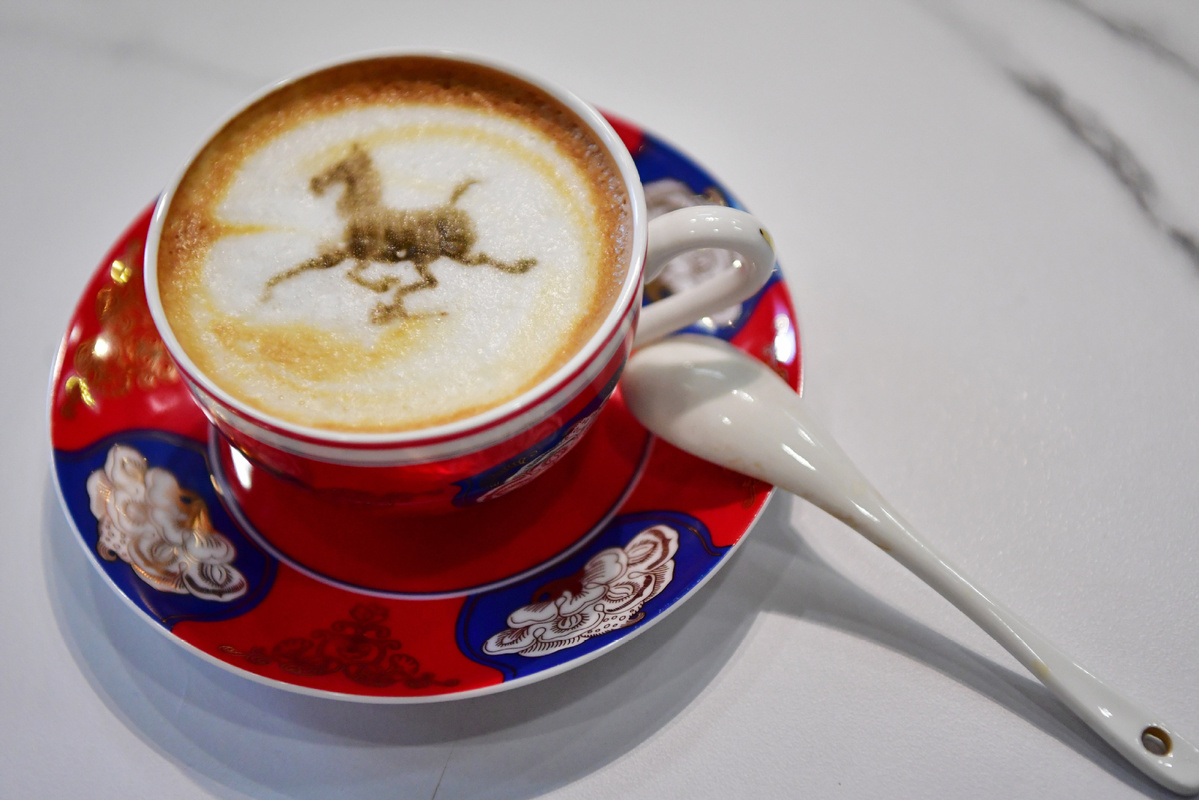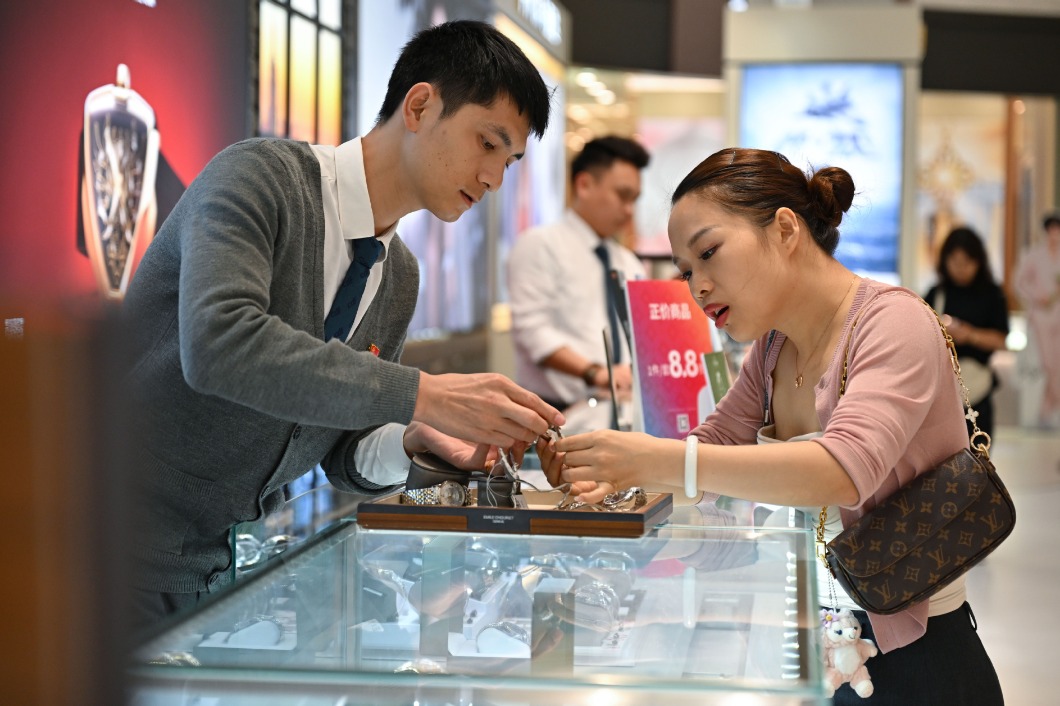Caffeine kick-starts revenues for hotels


Hospitality sector changes tack by appealing to more local customers with coffee bars
Hotels in China are joining hands with coffee chains as they look to attract customers and become a community hub.
Coffee consumption in China is growing rapidly. The nation's coffee market was valued at 381.7 billion yuan ($57 billion) in 2021 and is projected to grow to 1 trillion yuan in 2025, according to iiMedia Research, a data mining and analysis agency headquartered in Guangzhou, Guangdong province.
A growing list of established hotel companies are smelling the profitable aroma of coffee.
Hotel management group Huazhu announced in March that it would introduce Costa coffee in all its properties. Each Huazhu hotel can choose to set up a stand-alone coffee bar or "integrate" a coffee bar with the front desk based on its size and layout, according to news portal jiemian.com.
"Having the front desk staff double as baristas can substantially increase front desk revenue and reduce staff turnover," a representative of Huazhu's new business department told Beijing Business Today.
In addition to introducing established coffee brands, hotels are launching their own. In 2020, BTG Homeinns Hotels and Wanda Hotels & Resorts launched their own coffee brands, which are Ru Coffee and WanVita Cafe& Lounge respectively.
There are also coffee-themed hotel chains such as James Joyce Coffetel, a brand of Jin Jiang Hotels China Region, billed as a stylish and inclusive place that welcomes different cultures and ideas.
By offering coffee, hotels are looking to attract more local customers and become a community hub.
"The concept of a community hub is new to the hotel industry,"Sun Jian, general manager of BTG Homeinns Hotels, told travel news website pinchain.com.
"Hotels used to serve nonlocals, but now they are setting their sights on customers from within a few kilometers of the hotel.
"As hotels increasingly evolve into community hubs, coffee can be used as a vehicle to bring out more possibilities of hotels," Sun said.
Sammeul Hui, founder of James Joyce Coffetel, said the brand defines itself as a "lifestyle experience platform" with a focus on offline services.
Taking advantage of its multipurpose lobby, which includes a cafe, a selection of books for on-site reading and an art gallery, James Joyce Coffetel has made local residents one of its target customer groups and launched products and services to appeal to them, Hui was quoted as saying by pinchain.com.
He said by reaching out to local communities, James Joyce Coffetel has expanded its customer base. For example, some senior Shanghai citizens enjoy having coffee at James Joyce Coffetel.
According to a report by the Qianzhan Industry Research Institute, as cited by The Beijing News, coffee consumption in China is mainly driven by white-collar workers aged 20-40.
Many hoteliers believe that the quickest way for them to get closer to young consumers is to offer coffee experiences, China Tourism News reported.
Li Bin, vice-dean of the School of Tourism Sciences at Beijing International Studies University, sees "hotel plus coffee" as a viable business model.
He said sometimes the beverage in itself is no longer the ultimate product that consumers are looking for. It's more of a vehicle to have an experience and hotels possess an edge in offering experiences, pinchain.com reported.
Nonetheless, hotels looking to drive sales by upgrading their coffee offerings are advised to heed the risks involved.
For hotels that have launched their own coffee brands, they could face increasingly discerning customers as the drink gains popularity in China.
Coffee enthusiasts staying in a hotel would choose to purchase from their favorite brands even if there is a coffee bar inside the hotel, according to a report by China Tourism News.
For hotels that choose to partner with coffee brands, the partnership could cause friction as the two brands from different sectors try to integrate, the report said.
Gu Huimin, a professor with the School of Tourism Sciences at Beijing International Studies University, suggested that hotel companies and coffee chains consider whether their brands match up before entering into partnerships, Beijing Business Today reported.
If the two brands target the same market, their cooperation could progress more smoothly, Gu added.




































